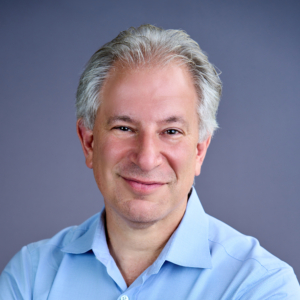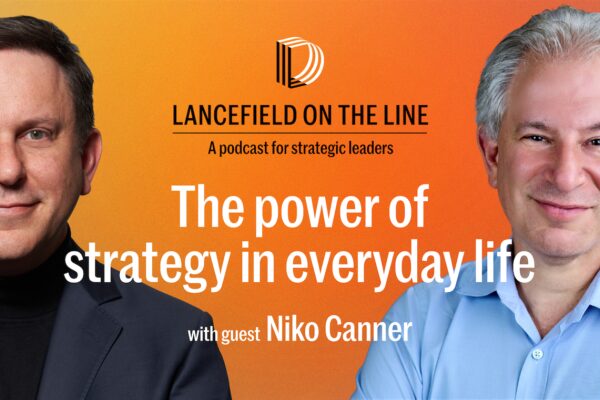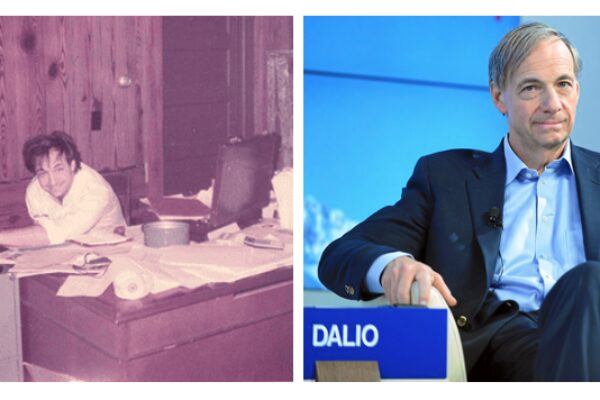
A few weeks ago, I celebrated my fiftieth birthday. As part of a day away from my usual routines, I spent the middle of the afternoon browsing Three Lives bookstore and picked up one of Ted Kooser’s collections, Delights & Shadows, which I opened to this poem:
Gyroscope
I place this within the first order
of wonders: a ten-year-old girl
alone on a sunny, glassed-in porch
in February, the world beyond
the windows slowly tipping forward
into spring, her thin arms held out
in the sleepwalker pose, and pinched
and stretched between her fingers,
a length of common grocery twine
upon which smoothly spins and leans
one of the smaller worlds we each
at one time learn to master, the last
to balance so lightly in our hands.
Back outside, as I walked the streets of the West Village, the idea of “smaller worlds we each at one time learn to master” kept ringing in my ears: a beautiful summary of how I spend my days. On the hour, I beam from one organization and its endeavor to the next. Each endeavor aims to grasp and order its part of the “world beyond the windows,” mastering that world just enough that a goal can be achieved.
Shortly after I turned 42, as I was getting ready to start Incandescent, I wrote down a picture of myself at 50. It is striking how much that picture has manifested in the past eight years. The imagined seven- and four-year-old children are actually Minh, 6 and Henry, 5. The firm I’d envisioned building was very much what Incandescent has become, a vehicle to work in parallel with large enterprises on strategy and organization; with founders on creating and building ventures, some of them from the ground up; and with foundations and non-profits on systems change. The book I’d envisioned having published isn’t done, but it is the book I’m now at work writing. For all the unimagined directions the world beyond the windows has taken, I am living, in all of the essence and most of the details, the life I dreamt.
Before that day amidst my 43rd year, I’d never before tried especially hard to picture my life a decade out, and if I’d done that at 20 or 30, my pictures wouldn’t have been particularly close. At 20, it wouldn’t have crossed my mind to consider how much my life at thirty would revolve around being a founder; at 30, I wouldn’t have imagined ten years out, that would have ceased to be the case. On the afternoon of my birthday, thinking to the rhythm of walking, I asked myself whether I had a picture of my life at sixty—and whether I wanted one.
The perspective I found more powerful was to project myself twenty years out: with luck, a healthy seventy, with two grown-up children deeply immersed in the spinning and leaning of their own small worlds. My picture of fifty was a vision of a point of arrival: ending the decade with children I hadn’t yet fathered, a firm that I hadn’t yet built, and a life rather different than the life I was embarking from in my early forties. But it didn’t make sense to me to think about seventy as a point of arrival. Contemplating a twenty-year arc, the perspective that fit better was immersion, not summation. These twenty years would never come again. Annie Dillard called a schedule “a net for catching days.” What could I catch within the net of these next seven thousand days?
These recent weeks I’ve been part of#TolstoyTogether, a community convened by the literary magazine A Public Space to share the experience of reading War and Peace over a steady 85-day march, guided by the novelist Yiyun Li (who turned 49 on the same day I turned 50). On page 974 of the Pevear and Volokhonsky translation, Tolstoy writes of Platon Karataev, a peasant soldier in captivity as a prisoner of war:
Each of his words and each of his acts was the manifestation of an activity he knew nothing about, which was his life. But his life, as he looked at it, had no meaning as a separate life. It had meaning only as a part of the whole, which he constantly sensed. His words and acts poured out of him as evenly, necessarily, and immediately as fragrance comes from a flower. He was unable to understand either the value of the meaning of a word or act taken separately.
The girl with the gyroscope exerts mastery of a small world, makes it balance on the string between her hands. Here, Tolstoy shows us a soul enlarged all the way out into Kooser’s “world beyond the windows,” released from the governance of intention, with nothing left that needs or asks to be mastered.
In the post Shaping a Vision, Shaping a Life, composed as I was immersed in the data from a twenty-year longitudinal study of Chinese MBAs, I wrote:
The central figure in our work at Incandescent is the individual reaching outwards in time, stretching toward a vision far beyond her grasp. From this perspective, an entrepreneur in her garage, a movement builder, and a chief executive committing to an imaginative leap regarding what her company could become are all engaged in the same human work.
Each has committed to a journey that calls to be undertaken as a whole quest, but can be advanced only in stages. This quest is impossible to fully visualize at the outset, such is its magnitude and its difficulty. Each era in the journey unlocks the conditions of the next.
This is the girl with the gyroscope grown up, undertaking to master greater and greater small worlds, beyond the scale of what “will balance so lightly in our hands.”
To see and to describe the patterns by which even the greatest small worlds can be mastered, to guide others on their journeys to build small worlds that matter—this is my life’s work. There is a way that, at fifty, I’m seeking to remain a child: always at the gateway of some larger sphere of knowing; always at play; sure that I’ll soon be a little bit bigger, able to lift up my arms to reach what’s just beyond my grasp today.
“I place this within the first order of wonders”: to witness the small worlds, each gracefully in motion, and know the spinning of the larger world beneath; to be with the parts and of the whole; to be the child at play and the father watching, writing the heart of it down, holding the unsteady world in mind.
Photo by Phil Roeder (Flickr)



